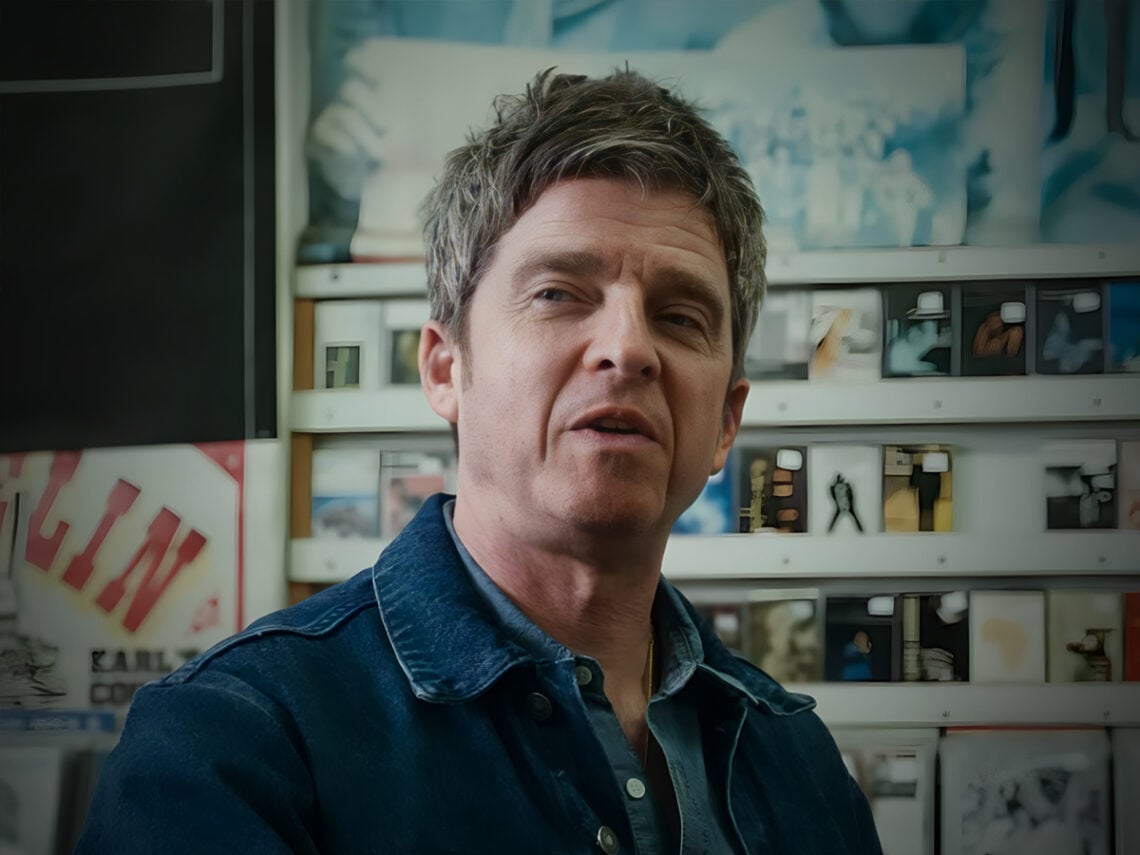Our Terms & Conditions | Our Privacy Policy
The band Noel Gallagher didn’t consider true guitar music

(Credits: Far Out / YouTube Still)
Wed 19 February 2025 11:00, UK
Ever since the dawn of rock and roll, the humble guitar has been the weapon of choice for a multitude of musical revolutionaries. From the duck-walking tones of Chuck Berry all the way through to the anarchic grunge rock of Kurt Cobain, guitar music has always managed to capture the spirit of the time, captivating audiences in the process. During the 1990s, it was Noel Gallagher who represented the fresh new face of guitar music, orchestrating the infectious tones of the Britpop years alongside Oasis.
Without the guitar of Noel Gallagher, Oasis would have never risen above their origins in Manchester’s Boardwalk. It was his songwriting and distinctive playing style during those early years that gave the budding young band their secret to success. In a few short years, Oasis rose from Mancunian obscurity to become the biggest band in the United Kingdom, arguably the biggest band in the world. Throughout that momentous journey to the top, the band’s appeal and popularity were always rooted in Gallagher’s guitar.
In the years that followed Oasis’ heyday, guitar music witnessed an expected decline in relevancy. Musical trends come and go, and by the end of the 1990s, many listeners had become fatigued by the tones of Britpop guitar, often opting for electronic pop beats instead. Before too long, guitars were back in the spotlight thanks to the indie rock efforts of groups like The Strokes, The Libertines, and Arctic Monkeys during the early 2000s, but this trend was again overshadowed by pop and electronica which resigned guitar music to the backseat.
The declining relevancy of out-and-out guitar music was reflected in the singles charts throughout the late 2000s and early 2010s, prompting Noel Gallagher himself to declare, “Guitar music as a force for being the biggest shit in the world is fucking over for now, you know what I mean?” Expanding on his viewpoint, the Oasis songwriter recalled, “In the mid-1990s, there was Oasis, Nirvana, fucking you name it.”
According to Gallagher, the inherent difference between the musical landscape of the 1990s and the scene of 2012, when he gave that interview to Portland Mercury, was the popularity of guitar bands. “Radiohead are still going, but you know what I mean,” he said. “My battleground is the charts, and guitar music at the top of the charts is virtually nonexistent.” He then clarified his statement, adding, “Unless you fucking count Green Day, which nobody should.”
Green Day are, in essence, a guitar-led group, but it should come as no surprise that Gallagher doesn’t consider the California punks real guitar music, as the Oasis songwriter has a long-running feud with the outfit. Seemingly, the trouble stems from Green Day’s 2004 classic ‘Boulevard of Broken Dreams’. Melodically, the song bears a striking resemblance to Gallagher’s magnum opus composition, ‘Wonderwall’, featuring the same chord progression and a similarly melancholic atmosphere.
As early as 2006, members of Oasis were calling out Billie Joe Armstrong and the gang for apparent plagiarism, which seems particularly ironic coming from Noel Gallagher. After all, the songwriter has often been accused of – and, in some cases, has readily admitted to – lifting riffs, chord progressions, and melodies from a host of other songwriters, ranging from Kurt Cobain to Paul McCartney.
Seemingly, Gallagher’s resentment of Green Day has mellowed over the years, and the songwriter even crossed paths with Armstrong at a U2 gig back in 2015. “I met Billie Joe the other night,” he revealed on the You Made It Weird podcast. “I was sitting beside him at a U2 concert in San Diego. He was a very, very nice guy, I’ve got to say.”
Whether or not the Green Day frontman was nice enough to make Gallagher reconsider his viewpoint that the pop-punk outfit are not true guitar musicians remains unknown. However, it is true that guitar music has not witnessed a true renaissance in the singles charts since the days of the early 2000s indie rock and garage revival.
Related Topics
Subscribe To The Far Out Newsletter
[ad_1]
Images are for reference only.Images and contents gathered automatic from google or 3rd party sources.All rights on the images and contents are with their legal original owners.
[ad_2]



Comments are closed.